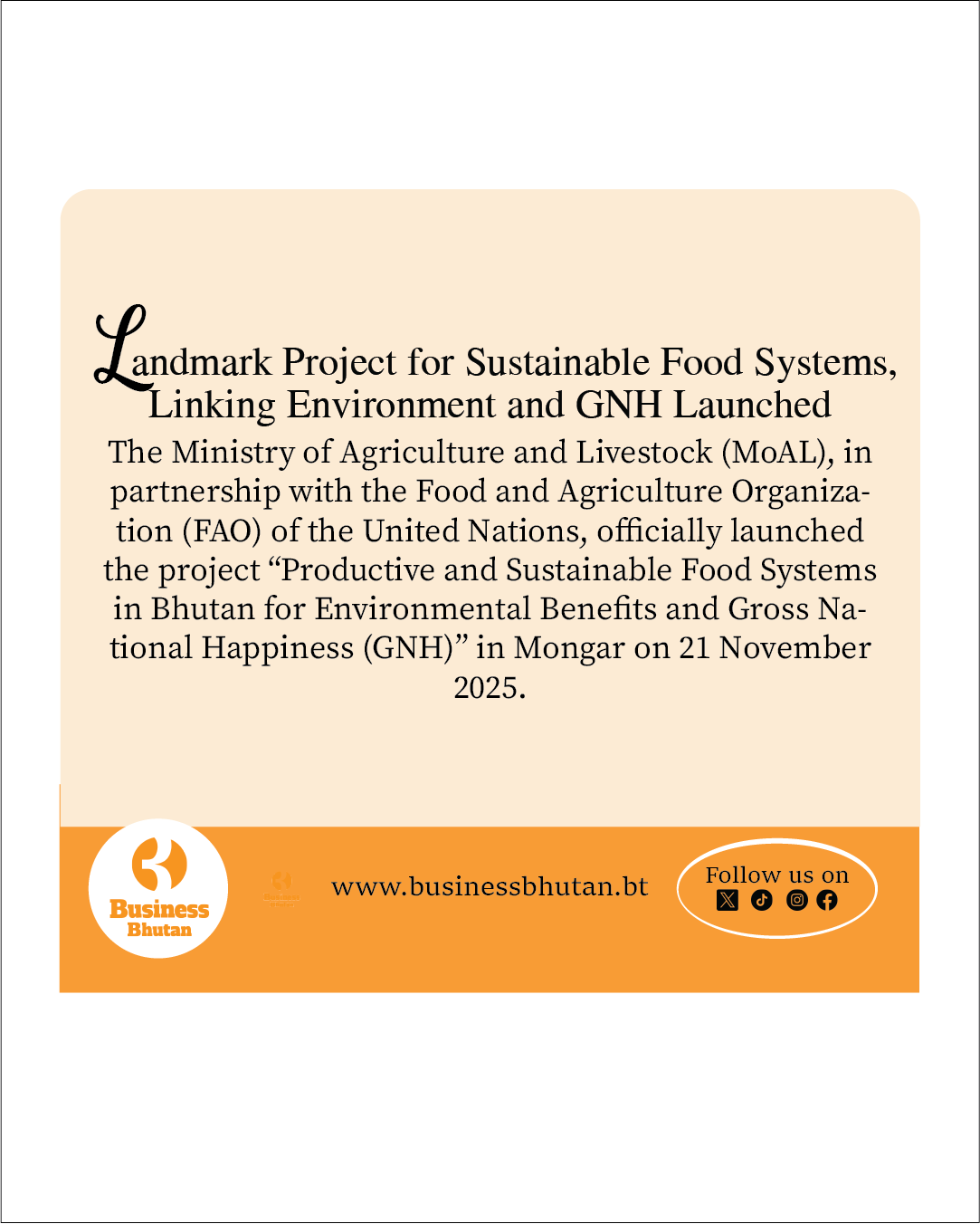A recent study by the Consumer Empowerment & Economics Division of the Competition and Consumer Affairs Authority (CCAA) has found that meat prices in Thimphu Thromde remain remarkably uniform across vendors, despite regulatory measures aimed at fostering competition.
The analysis, based on price data from 17 meat retailers, reveals persistent informal coordination and limited competitive pricing—signaling deeper structural issues within the meat retail market.
Earlier this year, the CCAA instructed the Bhutan Meat Vendors Association (BMVA) to discontinue coordinated pricing, after investigations revealed systematic alignment of retail prices. Vendors also received training on cost-based, competitive pricing methods.
However, post-intervention assessments show little to no price differentiation. Across almost all major meat categories, the mean and median prices remain closely aligned, indicating synchronized pricing rather than independent market decisions.
Among all categories, Catla Fish stands out as the only product showing significant price variation. Analysts attribute this to more diverse supply chains and weaker coordination among vendors—highlighting that where supply structures allow, competition can emerge more naturally.
In contrast, even premium items like dried pork strips, where quality differences could justify higher price variation, are sold at nearly identical rates across retailers.
The CCAA notes that informal coordination among BMVA members continues to shape retail pricing, limiting competition. In the absence of a formal competition law, the Authority’s current powers are largely advisory.
“Uniform pricing across vendors is a clear sign of weak competition,” said a senior official from CCAA. “While our interventions have created awareness, market behavior continues to reflect coordinated pricing rather than competitive strategies.”
“Without a formal competition law, our role is limited to advisory measures,” added a CCAA spokesperson. “This study reinforces the need for stronger legal tools to promote fair competition.”
Economists say the narrow gap between mean and median prices confirms synchronized pricing rather than independent strategies.
“The Catla Fish category clearly shows how diverse supply chains can foster competition,” explained an economic expert. “Where competition exists, consumers benefit from better prices and quality. Real competition requires more than just advisories—it needs sustained market monitoring, legal backing, and informed consumers.”
Many Thimphu residents express frustration over price uniformity, saying it leaves them with little room to make cost-based choices. “When every shop sells meat at the same price, there’s no point comparing,” said Tendi Dorji, a resident of Changzamtog. “We just end up paying whatever is set.”
“Competition would help not just us but also vendors who offer better quality,” shared a shopper at the Centenary Farmers Market.
Some vendors admit that aligning prices offers stability, even though it discourages healthy competition. “Most of us follow the same price to avoid undercutting each other,” said a Thimphu meat vendor. “Changing prices individually is risky without clear rules and stable supply.”
“If there was more support for independent pricing and supply, we’d be open to setting our own prices,” shared another vendor.
To promote a more competitive retail meat market, the report calls for strengthened price transparency and public access to comparative pricing data, regular market monitoring to detect informal coordination, encouraging independent vendors to diversify the market, consumer education to build demand-side pressure, and engagement with trade associations to promote ethical, pro-competitive self-regulation.
The study concludes that voluntary compliance alone is insufficient. “Strengthening competition benefits both businesses and consumers,” noted a CCAA official. A stronger regulatory framework, combined with empowered consumers and diversified market structures, is essential to build a truly competitive meat retail sector in Bhutan.
Tashi Namgyal
From Thimphu




![Fresh Beginnings: Pasakha Vendors Gear Up for New Vegetable Market - Duplicate - [#16963] Fresh Beginnings: Pasakha Vendors Gear Up for New Vegetable Market - Duplicate - [#16963]](https://businessbhutan.bt/wp-content/uploads/2025/11/Asset-200.png)











